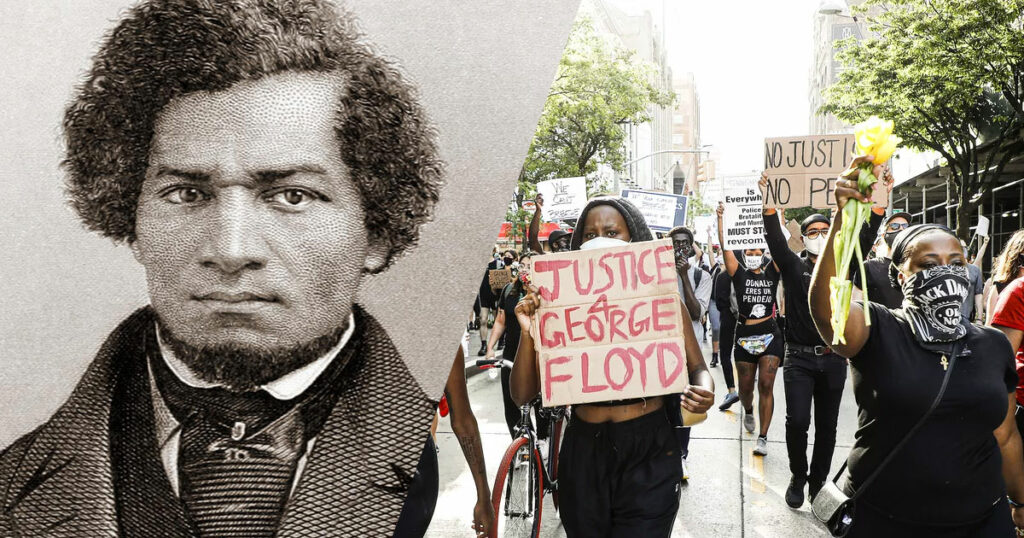Blog
What, to the Slave, Is the Fourth of July?

As we mark the Fourth of July and reflect on our nation’s promises of liberty and freedom, we must confront the fact that those promises are not equally fulfilled, especially for African Americans. If you ever doubted it, the COVID-19 pandemic and ongoing acts of police brutality have made this extremely clear.
Patriotism is not a performance act. In order to create real equity and justice we must hold our country accountable for its systemic racism and long history of denial of rights to Black Americans. As Frederick Douglass declared on July 5, 1852, “This Fourth of July is yours, not mine. You may rejoice, I must mourn.
The Carr Center for Human Rights Policy has released a series of important readings and actions for this Fourth of July:
What, to the Slave, Is the Fourth of July?
On July 5, 1852, Frederick Douglass delivered his famous speech to the Ladies Anti-Slavery Society of Rochester, N.Y., “What, to the Slave, Is the Fourth of July?”
What, to the Black American, Is Martin Luther King Jr. Day?
Written to parallel Frederick Douglass’ speech, “What, to the Slave, Is the Fourth of July?,” Chris Lebron, Associate Professor of Philosophy at Johns Hopkins, reflects on Martin Luther King Jr. Day and the myth of a “post-racial” world.
Around the country, groups are gathering to celebrate our nation’s holiday in the spirit of the work to be done to ensure it lives up to its promise for all, not the few. Including the KOCO rally in Chicago, July 4th, 11 am – 2 pm CDT: Equity or Else–What, to the Slave, is the 4th of July?
When we love something, we must demand better. Schott Foundation offices will be closed July 3rd, and once we’re back we’ll continue the vital work of supporting grassroots movements for racial justice and equity in public education.


